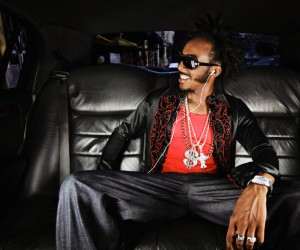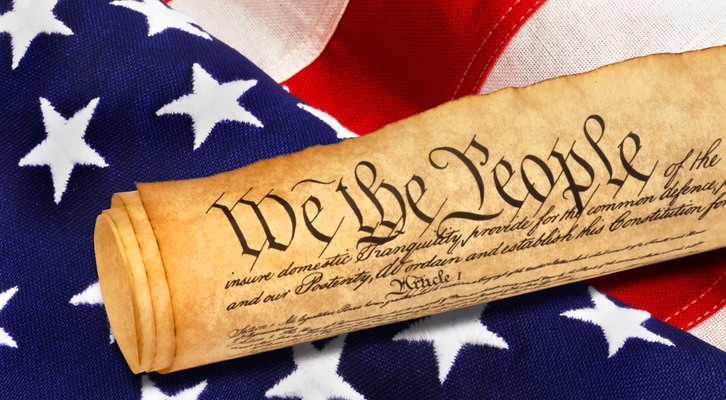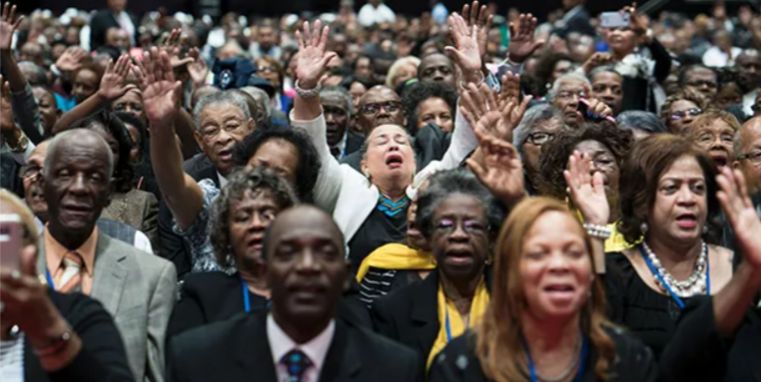(ThyBlackMan.com) On his March 14th appearance on the Arsenio Hall Show, Kid Cudi criticized, as he termed it, the “money, cash, hoes” hip hop of contemporary music and suggested new content for those artists to pursue. However, his critique offered something else: an alternative expression of masculinity connected with emotion and spirit, one desperately needed for black men to consider and to emulate if they are to become their best selves in society.
[youtube xDLmN84RQbo]
As Cudi insisted that these artists with this magnitude of influence use their craft for good and to “tell kids something that they can connect with and use in their life,” his emotional transparency was further revealed when he shared his mission statement. “All I wanted to do was help kids not feel alone and stop kids from committing suicide,” Cudi shared. His connection with those feelings, having experienced them himself, reflects a keen awareness of one’s emotional life that young black men must see more in their lives.
As popular culture currently stands, there’s no balance between the frivolity of celebrity and material culture and the essentials of emotional well-being. We have been subsumed, as Cudi recognizes, for decades, in images of lounging in expensive debauchery, celebrating a first gold chain, naming one’s self after two chains, all within a larger American culture of anti-intellectualism, concerned more with reality stars and entertainers than the structural, cultural, and political challenges of its people.
This leaves black men in a precarious place, following the status quo of “money, cash, hoes” masculine expression because there is no affirming, non-judgmental, non-shaming mainstream space crafted for black men to connect with their rich emotional and spiritual lives. Add to this void a surfeit of instructions to men of all ages that any lack of fulfillment or satisfaction you may feel you can load with women, polished cars, massive TVs, some weekends in the club, and some sky-rattling subwoofers, and we are left with pursuing of material solutions for spiritual issues.
satisfaction you may feel you can load with women, polished cars, massive TVs, some weekends in the club, and some sky-rattling subwoofers, and we are left with pursuing of material solutions for spiritual issues.
A dangerous scheme is then established for their lives because, as the saying goes, “hurt people hurt people.” Uncertain how to navigate spiritual terrain and damaged by the cultural messages that define maleness as being emotionally invulnerable and the shaming techniques of our childhood – with all the stories we black men can tell, saying “boys don’t cry,” “stop acting like a sissy,” or “don’t be so sensitive” – we internalize the urge to self-police our authentic selves. To that end, we end up policing others, damaging other potentially damaged men and perpetuating the cycle that allows patriarchal manhood, with its intolerance for emotionality and spirituality, to exist.
We need these living alternatives of masculine expression that reflects the truth of maleness to surface. We are testosterone and estrogen, flesh and blood, protectors and providers, sinew and soul. Examples like Kid Cudi – the one he represents and the ones he advocates for – show black men can be strong, but not invulnerable.
To fight against oppression from dominant culture via its racism, classism, and sexism (not the least of which includes stereotypical perceptions of sexual prowess and genital girth, rooted in white fascination with black male bodies), we must cultivate resistance strategies to arm against internalizing its dehumanizing messages.
However, we cannot be as armed against our loved ones. We must remain open emotionally, rejecting patriarchy’s insistence that men in fatherly roles cannot tend to the emotional lives of their children. Without that rejection, we leave them with father-sized holes in their self-esteem, whose contours form the barrier against any prompt of love and belonging, any recognition of their inherent goodness, and any expression of emotion and love with other men.
For true freedom from oppression, black men are not to pursue material wealth and social status, but self-recovery, healing childhood wounds and, as bell hooks reflects in We Real Cool: Black Men and Masculinity, marking the path for generations of men to come that emotional well-being is more valuable than your first gold chain or endless cars and alcohol bottles. Emotional health will last you your entire life: it won’t depreciate the moment it leaves the lot, and doesn’t decompose or isn’t confined to one festive night.
Certainly, visible wealth is highly important to artists coming from impoverished backgrounds. However, we as human beings are more dynamic and multifaceted than the wealth we can or cannot accumulate. To ignore that truth is to reinscribe the same stereotypes these artists’ power and influence can subvert. As Cudi suggests to these artists, offer another vision of who we are, one of our whole selves, not the wealth-worshipping and success-slaving selves we become in a country obsessed with market values.
We cannot pick and choose what sections of our lives to develop with the expectation of finding fulfillment. When we compartmentalize in this way, we create the dehumanizing images we see and pass on our generational curses of isolation and abandonment for future generations to suffer. Our own prosperity, individually and communally, depends upon our healing.
Doing the work of self-recovery exemplifies other ways to be male, and saves other black men from patriarchy’s prison. We recognize our inherent dignity and worth and can affirm the dignity and worth of the women and children around us. Seeing ourselves and other men with dreams, aspirations, and emotions rooted in the authenticity of the human experience, our true selves emerge and allow the success, the relationships, and the lives meant for us to surface.
Sometimes it’s not The Man of anti-black racism, but The Man of patriarchy we have shaped ourselves to be that keeps us from getting ahead. We have to save ourselves for the freedom and health we seek. As evidenced by its embrace of the patriarchal, material, capitalist, and sexist values mainstream rap supports, dominant culture and its people surely will not.
Staff Writer; Adam S. Wilson
May also view more of this talented brother work over at; http://www.nosilos.wordpress.com.
Feel free to follow him via Twitter; http://Twitter.com/adamiam.
















Leave a Reply